In this article
Caring for a cat is usually full of cute and rewarding moments, but it’s another story entirely if they experience vomiting. The underlying cause can be one of a variety of reasons, but no matter what, it’s no fun to clean up, and you’ll want your kitty to feel better as quickly as possible.
If there’s a serious condition, taking your cat to the vet is the best solution. However, sometimes vomiting in cats can be caused by their diet, how quickly they eat, or it can be a side effect of medication. If you and your vet have ruled out major problems, consider one of these natural home remedies to ease your cat’s upset stomach and help reduce vomiting.

Cleaning Cat Vomit
Cleaning up after our pets is not the most enjoyable part of owning them. Investing in the right products can make the process a lot easier! You’ll want to opt for something safe first and foremost, to protect your feline’s health, but secondly, you’ll need a solution powerful enough to lift the toughest, stinkiest, most set-in stains. An enzyme cleaner is a great go-to option to do just that.
Our Favorite Enzyme Cleaner The Hepper Advanced Bio-Enzyme Pet Stain & Odor Eliminator Spray is our favorite enzyme cleaner out there. It permanently removes even the very worst kitty stains and smells, leaving your home fresh and clean! Click here to learn more about this amazing product and get yourself a bottle.
At Catster, we’ve admired Hepper for many years, and decided to take a controlling ownership interest so that we could benefit from the outstanding products of this cool cat company!

The 4 Best Natural Home Remedies for Cat Vomiting
1. Ginger Tea

Ginger has been used in traditional human medicine for centuries due to its many health benefits and nutritional properties. Ginger tea helps soothe the stomach lining, improves digestion, and has an antinausea effect. Ginger tea is safe to use for cats, and it is a good and easy to prepare a natural remedy for vomiting.
- Wash and peel the ginger root.
- Finely chop about ¼ of a tablespoon of ginger.
- Add the freshly chopped ginger to 1 cup of boiling drinking water and let it simmer for around 15 minutes.
- Let it cool down and strain it.
- The final product will be less than one cup due to the evaporation, but you will end up having enough treatment for a cat that weighs approximately 9 lbs.
- Divide the total amount into six equal parts and offer your cat one part every 2 hours using a spoon or a syringe.
2. Fasting
If you suspect that a change in your cat’s diet may be the culprit, allowing your cat to fast for a limited time may help reduce vomiting. This solution is as simple as not feeding your cat their normal breakfast or dinner. You can have your cat fast for 12-24 hours, but, of course, always make sure they have fresh water available at all times.
If you notice that your cat stops vomiting after fasting, you can slowly reintroduce food and monitor them to see if the issue returns. If it does, you may want to consider speaking with your vet about the food you use or changing the food altogether. If you can link vomiting to a new food or flavor of food, it might be that your cat has food allergies and will continue to reject that particular cat food. Swapping to a new food may permanently fix your cat’s issue.
Persistent vomiting or a combination of vomiting and diarrhea can put your cat at risk of dehydration. You should not fast a cat that presents vomit with diarrhea unless prescribed by your cat’s veterinarian.
If you are fasting a cat that has just begun vomiting episodes, please ensure it is drinking enough water. You can add one part of an electrolyte solution, such as unflavored Pedialyte, to every three parts of fresh drinking water on the day your cat will be fasting. If the cat is not drinking and vomiting persists, consult a vet for guidance on the best course of action.
If you need to speak with a vet but can't get to one, head over to PangoVet. It's an online service where you can talk to a vet online and get the advice you need for your pet — all at an affordable price!

3. Bland Diet
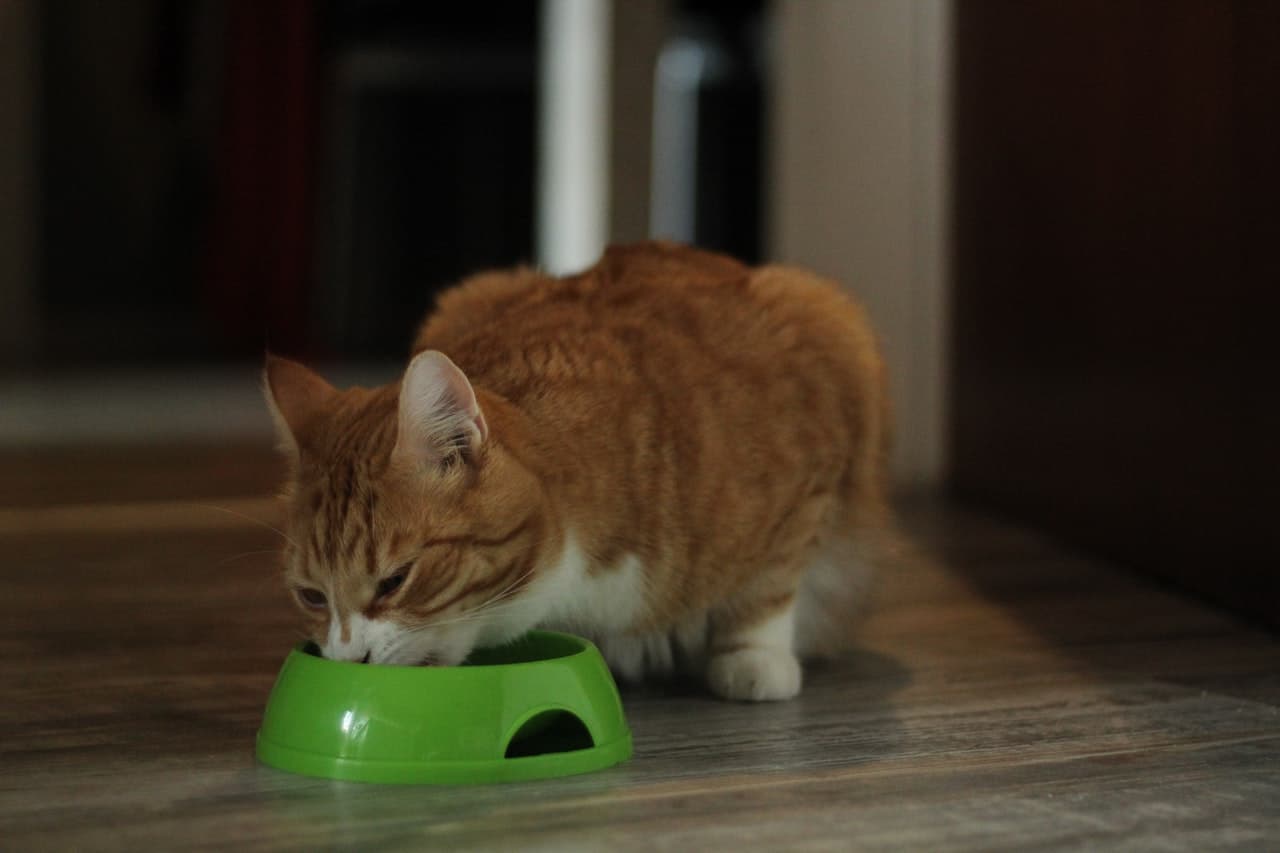
If you aren’t keen on having your cat fast for a day, or you’re looking to ease your kitty back into eating their normal diet following the fast, a bland diet can help continue to reduce vomiting.
Some good, bland additions to your cat’s diet include boiled chicken or turkey meat without fat and small amounts of white rice. These foods have protein and carbohydrates that will provide your cat with the necessary nutrients and energy. According to bland diet vet experts, these foods are easy to digest and won’t cause additional vomiting.
You can begin with these foods and continue feeding them to your cat over a few days while you slowly work their normal food back into their diet.
4. Petroleum Jelly or Mineral Oil
One common reason for cat vomiting, as you’re likely well aware, is the presence of hairballs. When a cat vomits, they may be trying to get a hairball out that isn’t passing properly.
If you believe a hairball may be the reason for vomiting, you can offer your feline friend some petroleum jelly or mineral oil, which is known to help hairballs pass more smoothly. Some cats accept licking petroleum jelly right off your fingers. You can also try adding a teaspoon of pure mineral oil with no added perfumes or other substances to your cat’s regular food. Never try to force-feed mineral oil to your cat because if they accidentally inhale it, it can be very dangerous.

Final Thoughts
There are a few causes of vomiting in cats, but, of course, your first goal when yours is sick is to get them feeling better as quickly as possible. If you’ve already ruled out major problems with your vet or if you know that the cause of vomiting isn’t serious, one of these natural home remedies will help to get your cat feeling better as quickly and safely as possible.
Related Reads:
Featured Image Credit: Kginger, Shutterstock




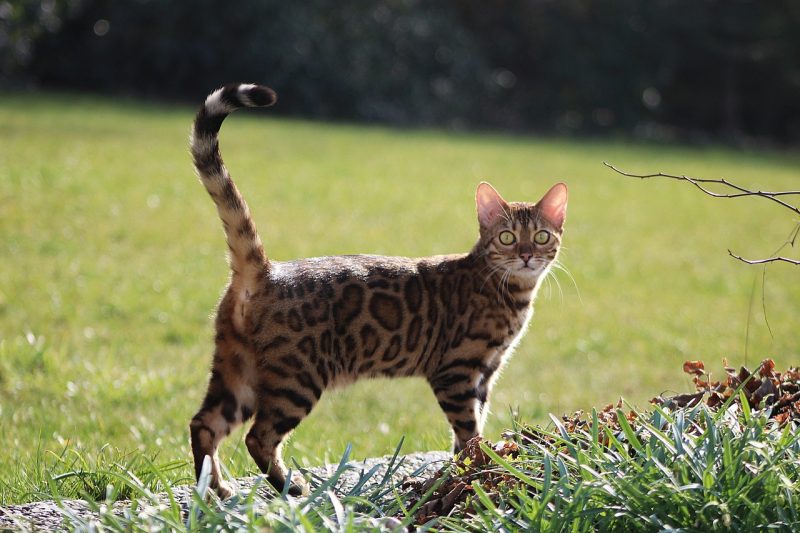

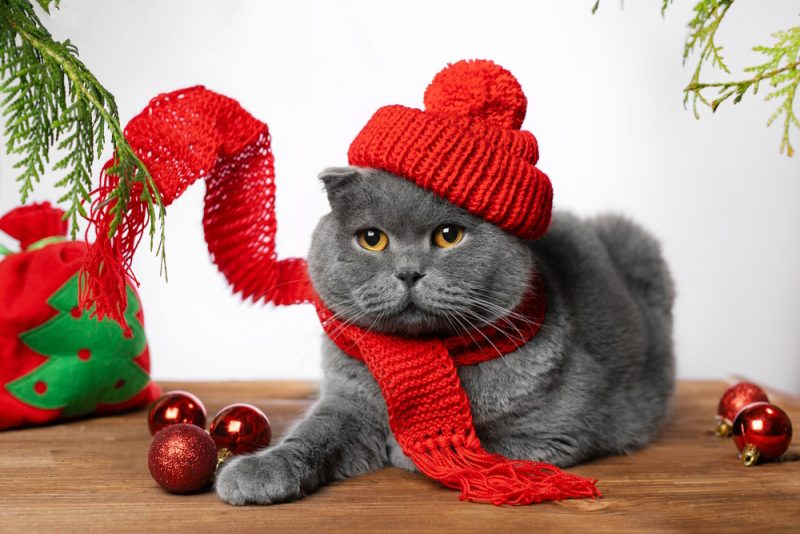
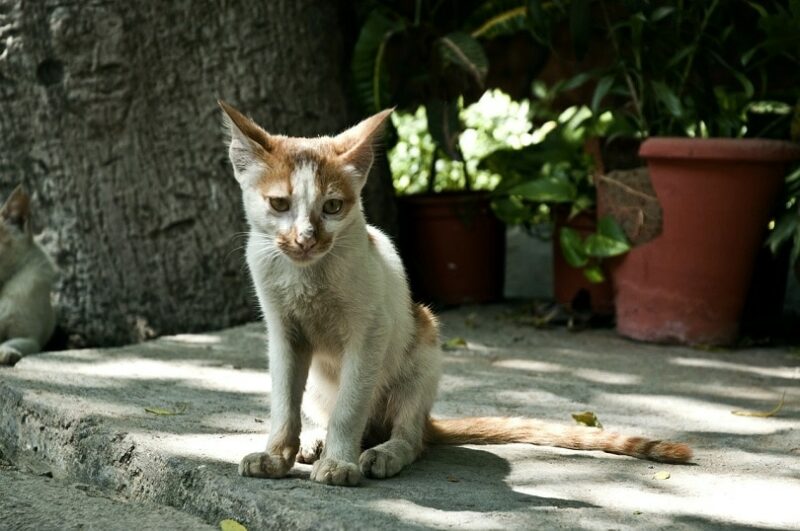

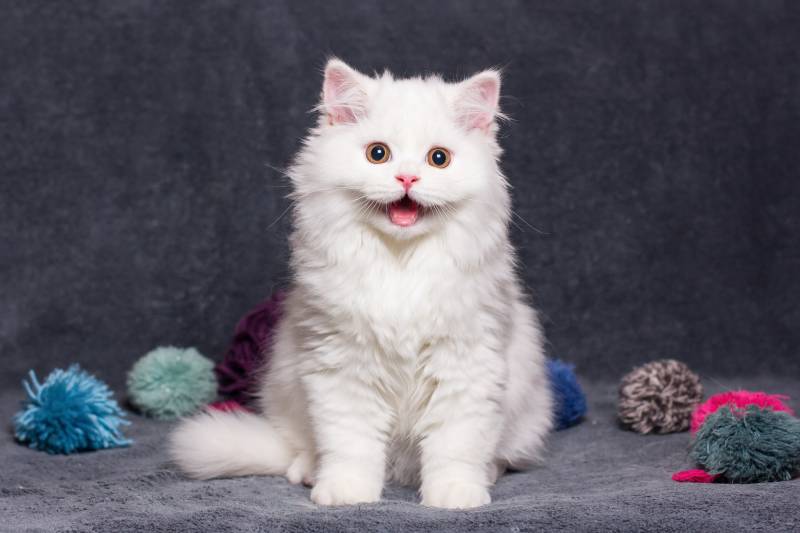
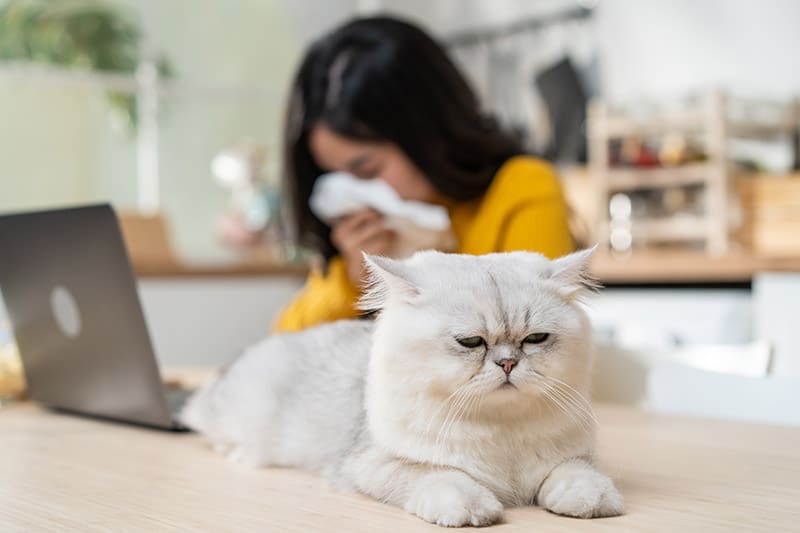
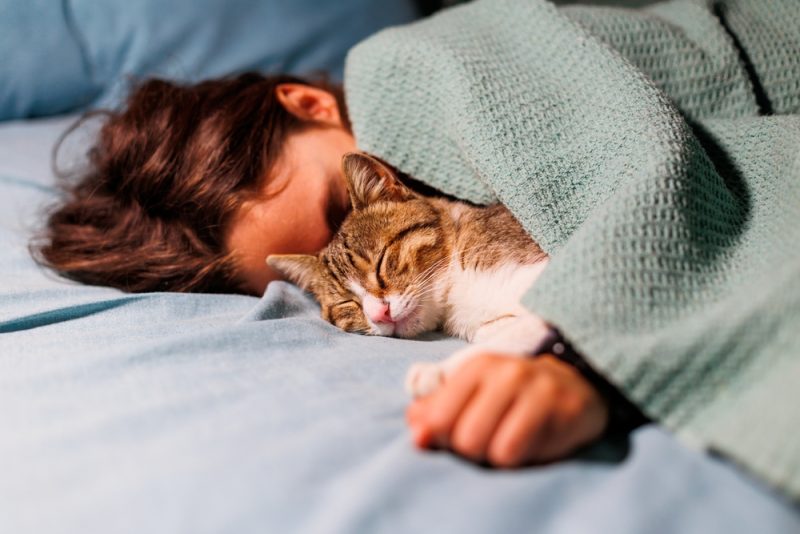
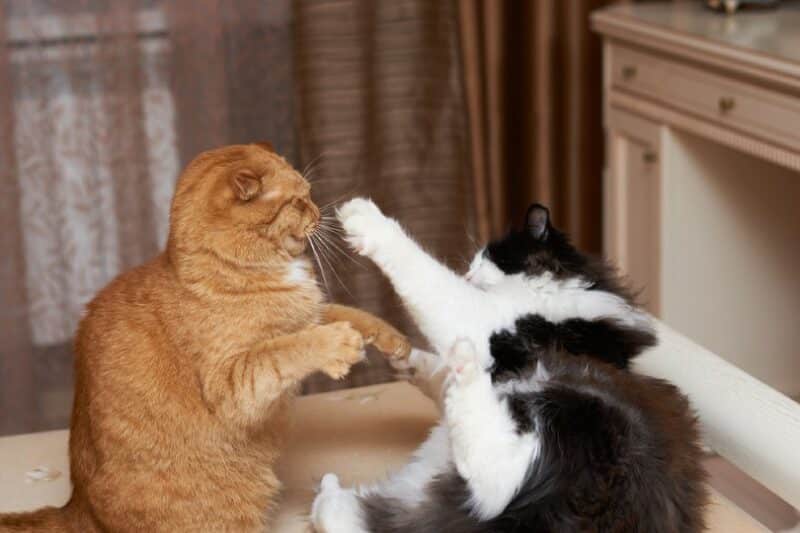

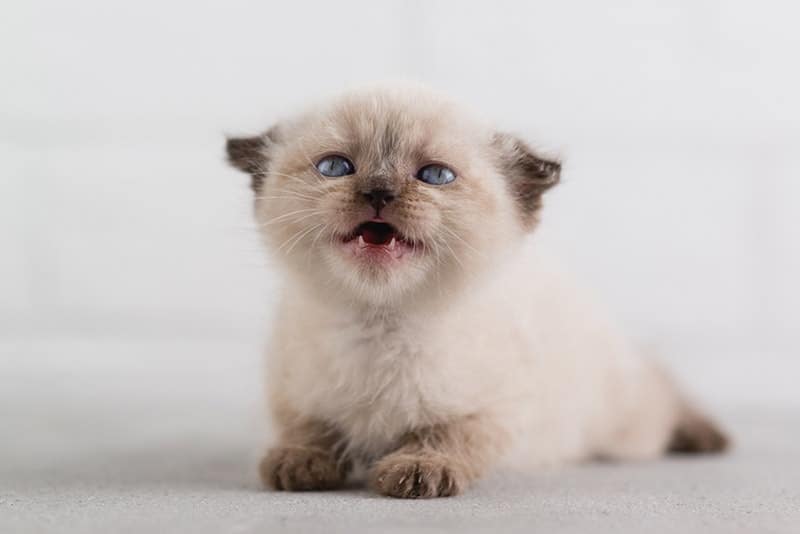

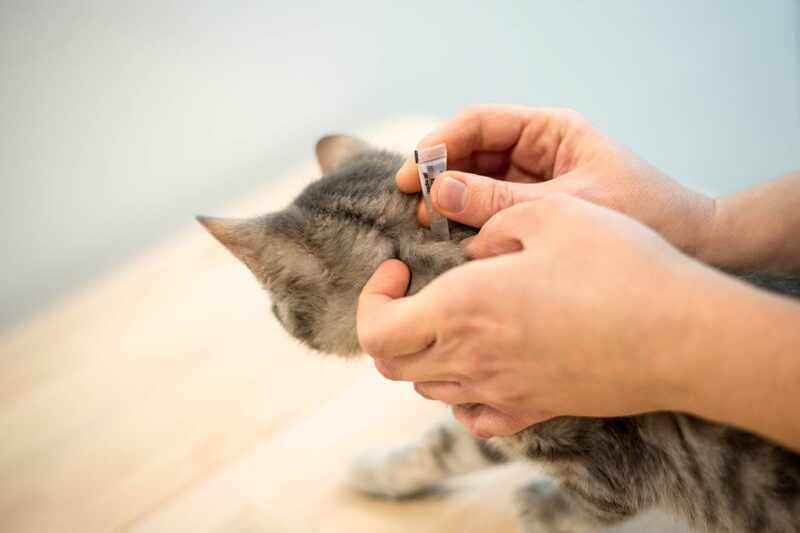

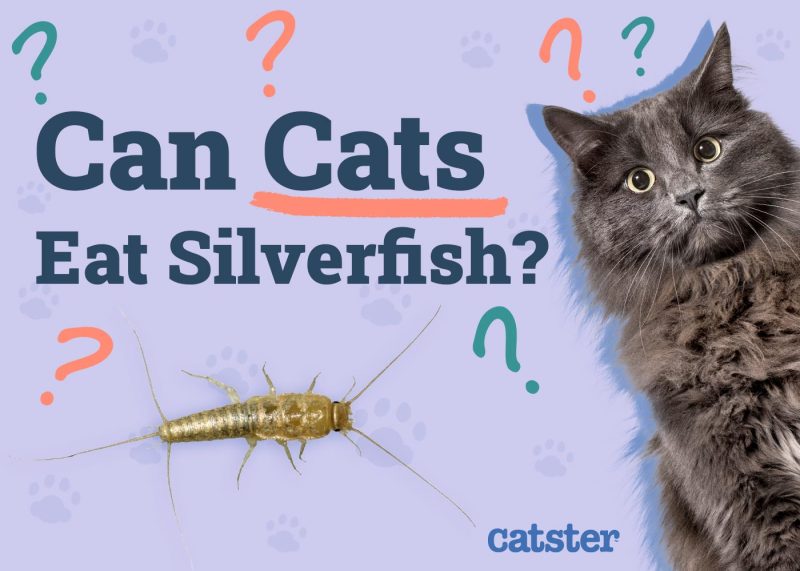



2 Responses
My cat, Hugo is 12 1/2 yrs, he has had a history of periodic vomiting through the years.The vet said he was probably allergic to chicken and eighty percent of the catfood out there has some sort of chicken in it.
I have change his food 3 or 4 times in the last couple months to no avail it's getting very expensive.
His energy and overall psych seems fine, he is very finicky, so I try lacing his food with tuna and water or wet cat food and water to make it more palatable.
I am retired and make a meager salary I cannot afford expensive food. I am at wits end. Either he rejects the food or vomit it back.
I have purchased Iams and Purina One & Abound. So not the cheap ones.
Hi Matthew. We’re really sorry you’re going through this with Hugo. It’s incredibly discouraging to try so many foods, especially when you’re on a fixed income, only to have him refuse them or bring them right back up. Anyone in your position would feel worn out, and it makes perfect sense that you’re worried and looking for answers.
Although a chicken allergy can certainly cause ongoing vomiting, the fact that multiple food changes haven’t helped suggests there may be more going on. Cats can seem bright and energetic on the outside while still dealing with issues like inflammatory bowel disease, hyperthyroidism, or early kidney problems. Depending on tuna and water is understandable when you’re trying to get him to eat something, but it won’t give him the complete nutrition his body needs to stay healthy. At this point, changing diets alone may not be enough, and a deeper look into what’s causing his symptoms could finally bring you the clarity and relief you’ve been hoping for. If you wish to have a chat about this with one of our vet they are available at www.pangovet.com.